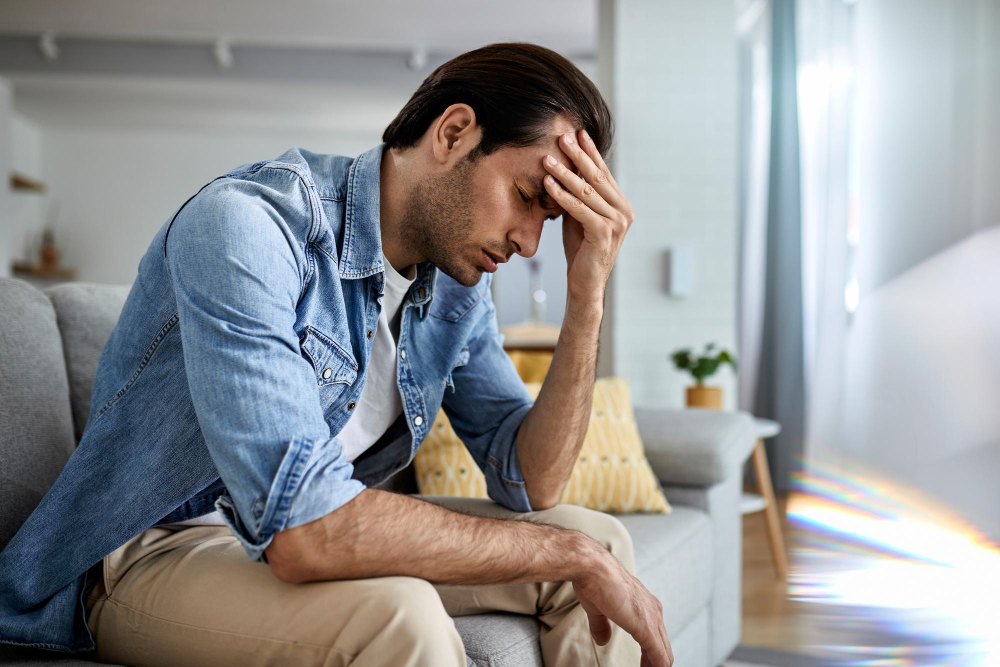Anxiety Relief: Medical Marijuana and Its Transformative Effects

In the midst of a global societal shift towards recognizing the benefits and potential of medical marijuana, the conversation about its efficacy in the treatment of various conditions—most notably anxiety—continues to evolve. Traditionally viewed with skepticism by some and as a veritable panacea by others, cannabis has a complex and varied profile that merits careful consideration.
This blog aims to provide a comprehensive overview of the ways in which medical marijuana can serve as a natural ally in our battle against anxiety. By examining both anecdotal and empirical evidence, as well as the pertinent legal and ethical considerations, we will shed light on a topic often shrouded in misunderstanding and stigma.
The Science of Serenity: Understanding Anxiety
Before we explore the potential benefits of medical marijuana in treating anxiety, it's important to understand the condition itself. Anxiety disorders are among the most common mental health issues, characterized by excessive worry, fear, and physical symptoms like increased heart rate and rapid breathing. The cause of anxiety is complex and multifaceted, with a myriad of contributing factors, including genetics, brain chemistry, and life events.
In a world increasingly fraught with stressors, the need for effective anxiety management has never been greater. Traditional pharmaceutical interventions have their place, but they are not without limitations. Herein lies the impetus for exploring alternative therapies, such as medical marijuana.
Medical Marijuana and Anxiety: Bridging the Gap
For individuals who have found little solace in conventional treatments or who seek a more holistic path to wellness, medical marijuana may offer a beacon of hope. With a rich history of anecdotal support and a growing body of research, cannabis is showing promise as an anxiolytic—a compound that reduces anxiety.
The Role of Cannabinoids
At the heart of marijuana's potential to alleviate anxiety are cannabinoids, the chemical compounds found in the cannabis plant. Of particular interest are two cannabinoids: tetrahydrocannabinol (THC) and cannabidiol (CBD). Both have been the subjects of numerous studies exploring their effects on anxiety, with CBD emerging as a non-intoxicating alternative to THC.
CBD for Calm
CBD, in particular, has garnered significant attention for its anxiolytic properties. Unlike THC, it does not produce the "high" typically associated with marijuana use. Studies suggest that CBD may interact with serotonin receptors in the brain, which is significant given that serotonin is a neurotransmitter often linked to mood regulation.
The THC Story
While CBD is known for its calming influence, THC's reputation has been more ambiguous. It's worth noting that high doses of THC can sometimes produce or exacerbate anxiety. However, at lower doses, it may be effective at reducing anxiety by activating the endocannabinoid system, a network of neurotransmitters that helps regulate stress and mood.
Navigating the Legal Landscape
The legal status of medical marijuana varies from state to state and country to country, which can be a source of confusion for patients and healthcare providers alike. In many jurisdictions, medical marijuana is legal with a doctor's prescription. However, acquiring a prescription often entails meeting specific qualifying conditions, which may include a diagnosis of an anxiety disorder.
Lifestyle Considerations
Beyond legal and medical regulations, it's important for individuals to consider the broader implications of using medical marijuana to manage anxiety. Lifestyle factors, such as diet, exercise, and social support, all play a critical role in mental health. Medical marijuana should be viewed as part of a comprehensive treatment plan, not a standalone solution.
Integrative Approaches
For many patients, an integrative approach that combines various therapies—including medical marijuana, counseling, and lifestyle changes—yields the most significant benefits. This approach acknowledges the multifaceted nature of anxiety and the need for a personalized, multifaceted response.
A Word on Side Effects and Risks
Like any treatment, medical marijuana is not without risk. THC can impair judgment and coordination, and long-term use may have cognitive effects. Side effects, though often mild, can include dizziness, dry mouth, and changes in appetite. It's important for patients to discuss the potential risks with their healthcare provider and to use medical marijuana responsibly.
Moving Towards a Greener Future
What does the future hold for medical marijuana and anxiety? Continued research will no doubt refine our understanding of the plant's therapeutic potential. The dialogue between science and anecdotal evidence will play a crucial role in shaping policy and practice.
For now, individuals struggling with anxiety have an increasingly diverse array of options, including medical marijuana. The decision to explore this avenue should be made with careful consideration, in consultation with qualified professionals. With openness, education, and a healthy dose of caution, we can harness the potential of medical marijuana to pave the way for a more tranquil future. If you're looking for a medical marijuana card in Altamonte Springs, FL, contact CSG Med today for more information.